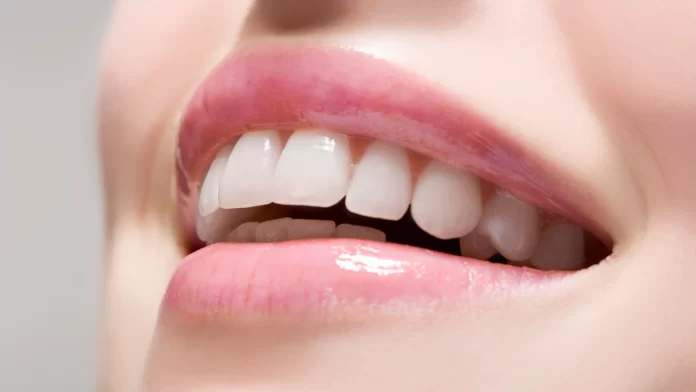Table of Contents
Are you suffering from sensitive teeth?
Tooth sensitivity (experienced as a short, sharp shock of nerve pain), while unpleasant, can in fact serve as a valuable indicator that there may be an underlying issue which requires attention from your dentist. If you have already noticed some discomfort with your teeth when drinking a cold or hot beverage, it is only likely to get worse. The good news is that sensitivity in the gums and/or teeth can be managed by maintaining regular dental checkups and practising good oral hygiene. But first, you must determine the type of sensitivity you are experiencing.
What are the telltale signs of sensitive teeth or cavities?
The discomfort and sensitivity that are brought on by cavities are often mistakenly believed to be the result of having sensitive teeth. There are in fact significant distinctions between these two conditions, though the pain from both is usually felt after consuming sugary food and drinks.
- Cavities: Decaying teeth form cavities when tooth enamel is destroyed by the plaque acid from food and drinks high in sugar. Early cavities may not cause great pain but, as the deterioration proceeds, you are likely to experience a constant throbbing toothache which may ultimately become sheer agony.
- Tooth sensitivity: Hot or cold foods and drinks like ice cream or hot coffee will also cause smarting in the affected teeth. This is because they stimulate nerves in the teeth by exposing the dentine – that’s the softer layer below the enamel. You might also grimace when you breathe in cold air or eat foods that are acidic, sweet, or sour.
People deal with dental sensitivity in various ways. For example, some will avoid trigger foods and make major adjustments to their eating habits and social lives, but then they may find that their quality of life suffers as a result. Despite these efforts and the considerable impact they may have on one’s life, the number of people with dentine hypersensitivity has regrettably increased in recent times.
Getting to the root of teeth sensitivity
To put it simply, sensitive teeth issues occur when the dentine layer within your tooth or teeth is left exposed. This is brought on by erosion of the tooth’s external enamel which can happen as a result of excessive brushing or, conversely, from a lack of overall oral care and hygiene. In short, the dentine layer is covered with numerous microscopic holes that extend all the way to the tooth’s central nerve. When the dentine is exposed, the resulting fissure leaves the tooth vulnerable, allowing any substance that comes into contact with the tooth to irritate the nerve and cause pain.
This is why you may experience discomfort and sensitivity when you bite down on something hard, drink anything hot or cold, or grind your teeth excessively. If so, don’t neglect your sensitive teeth. A visit to your dental professional will confirm what potential reasons there may be for your pain, such as gum recession or a broken tooth. In order to effectively treat the issue, it is crucial to accurately diagnose the cause of the sensitivity.
The best defence against tooth sensitivity
Scheduling regular dental checkups can effectively prevent, slow down, or even halt tooth sensitivity. However, practising proper oral hygiene by introducing a consistent daily routine is the first step. Brushing, flossing and drinking lots of water all add up to sensitivity-free teeth and brighter smiles.
Bleaching with sensitive teeth
If you experience tooth sensitivity, you can still consider whitening as an option. However, before beginning any cosmetic dental treatment, your mouth must be healthy and free of tooth decay and gum disease. Therefore it is especially important to choose your treatment carefully and to seek the guidance of a qualified dental professional.
Before determining if teeth whitening is going to be a safe and effective option for you, your dentist will carefully examine your teeth and gums, review your medical history, and discuss any tooth sensitivity you may have. They will ensure that you have a clear understanding of the expected outcomes, as well as all potential benefits and risks involved. Then you can approach your procedure with confidence and certainty.
















